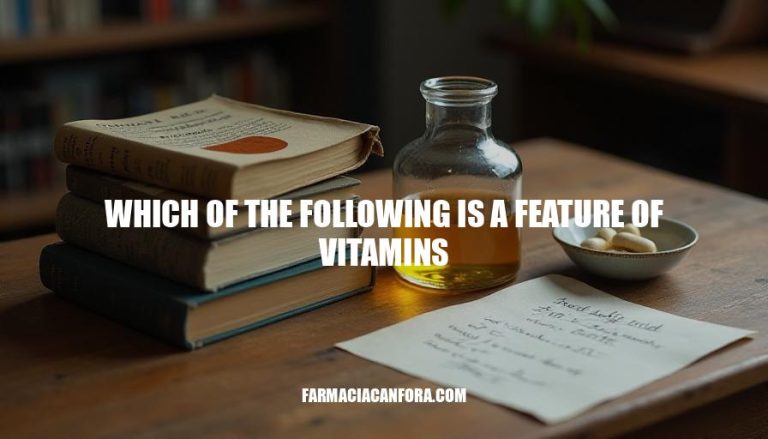


Vitamins are super important for our bodies. They help us function properly and stay healthy. They support things like metabolism, immune systems, and cell health.
Unlike other nutrients like proteins and fats, vitamins are needed in smaller amounts but do a big job in keeping our body working right. Vitamins are special because they’re made of organic stuff and can dissolve in water or fat. Most of the time, our bodies can’t make them on their own, so we need to get them from food.
Understanding these things helps us know what we need and how to get it, which is key for staying healthy and avoiding problems.
Vitamins are organic compounds essential for sustaining life and promoting physiological functions. Their features include:
Organic Nature: Vitamins are organic molecules, meaning they contain carbon and are derived from living organisms, such as plants or animals. They are synthesized either by nature or through supplements.
For example, vitamin C (ascorbic acid) is a naturally occurring organic compound found in citrus fruits.
Support for Metabolic Processes: Vitamins act as coenzymes or precursors to enzymes, facilitating biochemical reactions that are critical for energy production, cell repair, and overall metabolic regulation. For instance, vitamin B1 (thiamine) is a coenzyme for metabolic pathways involved in breaking down carbohydrates into energy.
Water-Soluble vs. Fat-Soluble Classification: Vitamins are categorized based on their solubility:
Water-Soluble Vitamins: Dissolve in water and are not stored in the body, thus requiring consistent dietary intake.
Examples include vitamin B complex (like B6 and B12) and vitamin C.
Fat-Soluble Vitamins: Dissolve in fats and oils and can be stored in the body’s fatty tissues for longer periods. Examples include vitamins A, D, E, and K.
These distinctive features demonstrate the vital roles vitamins play in maintaining human health and wellbeing.
Vitamins are essential for our bodies, playing a crucial role in maintaining proper function and overall health. They support various bodily processes such as metabolism, immune systems, and cell health. Unlike other nutrients like proteins and fats, vitamins are needed in smaller amounts but do significant work in keeping the body functioning correctly.
Understanding the features of vitamins is key to recognizing their importance and making informed choices about our diet. Vitamins are organic compounds that can dissolve in water or fat, and most of the time, our bodies cannot produce them on their own, so we need to obtain them through food.
Recognizing these features helps us appreciate the vital roles vitamins play in maintaining human health and wellbeing. By understanding which of the following is a feature of vitamins, we can make informed choices about our diet and lifestyle, leading to healthier choices in daily life.